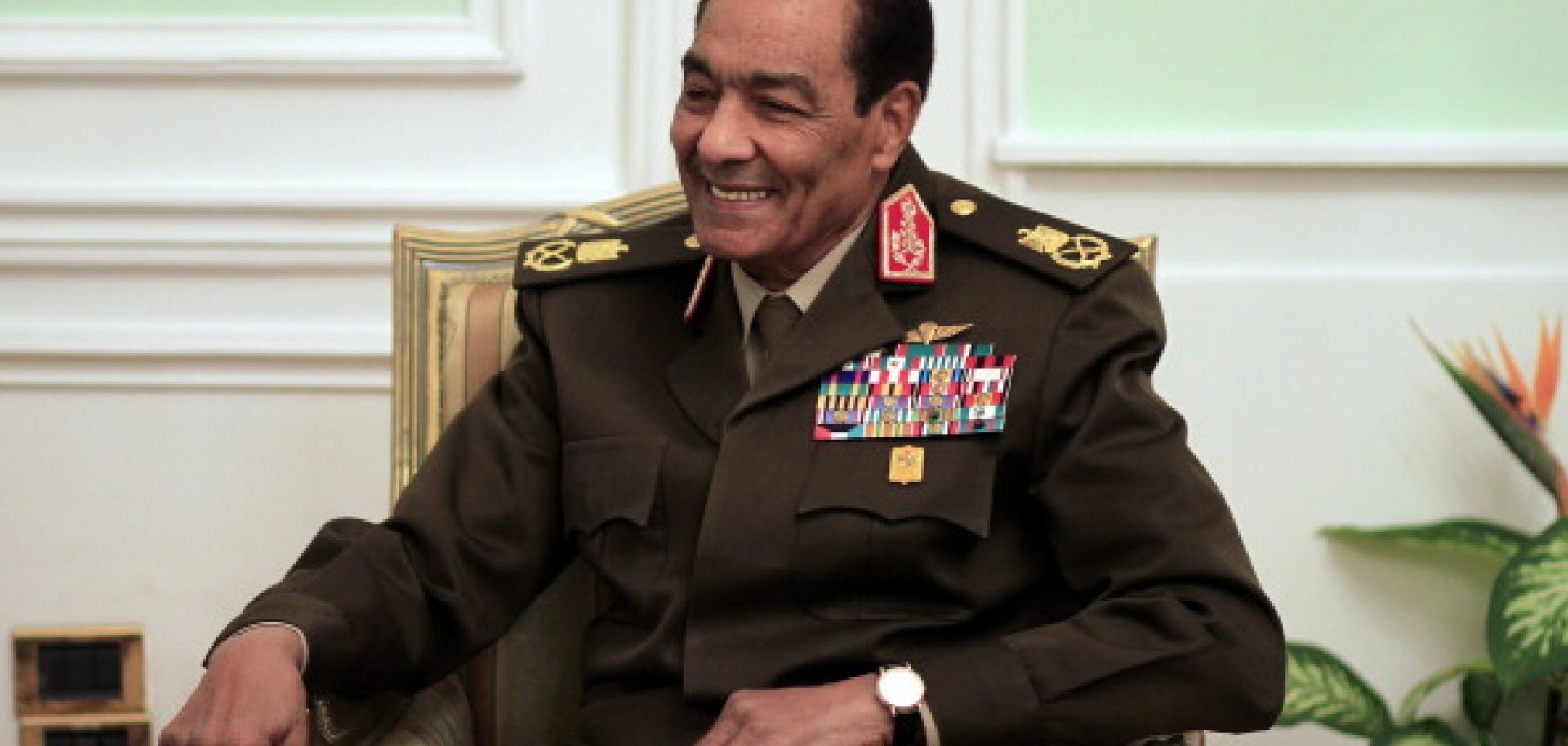ASSESSMENTS
Negotiating the Final Stage of Egypt's Transition
Mar 29, 2012 | 17:04 GMT

KHALIL HAMRA/AFP/Getty Images
Summary
The Egyptian Muslim Brotherhood (MB) released a statement March 24 that strongly condemned the ruling Supreme Council of the Armed Forces (SCAF) for its handling of the transition from military to political leadership. The MB, Egypt's leading Islamist party, questioned the impartiality of the judiciary and criticized SCAF-backed Prime Minister Kamal el-Ganzouri's refusal to dismiss a failing Cabinet. The Brotherhood also accused the military of trying to rig the upcoming presidential election. The SCAF responded a day later, asserting in a statement that it was above "verbal jousting." Alluding to the MB, the statement accused some forces in the country of trying to pressure the military and undermine both the SCAF's mission and the interests of Egyptians.
The entire episode has raised the question of whether the military and the Muslim Brotherhood are moving away from a period of broad cooperation and perhaps paving the way for a resurgence of political violence in Egypt. The military still holds the upper hand in the contest to preserve a strong degree of influence over the country's future civilian government. As they negotiate with the military, Egypt's political Islamists will ultimately make greater sacrifices in the short term in order to avoid derailing the political transition altogether.
Subscribe Now
SubscribeAlready have an account?
